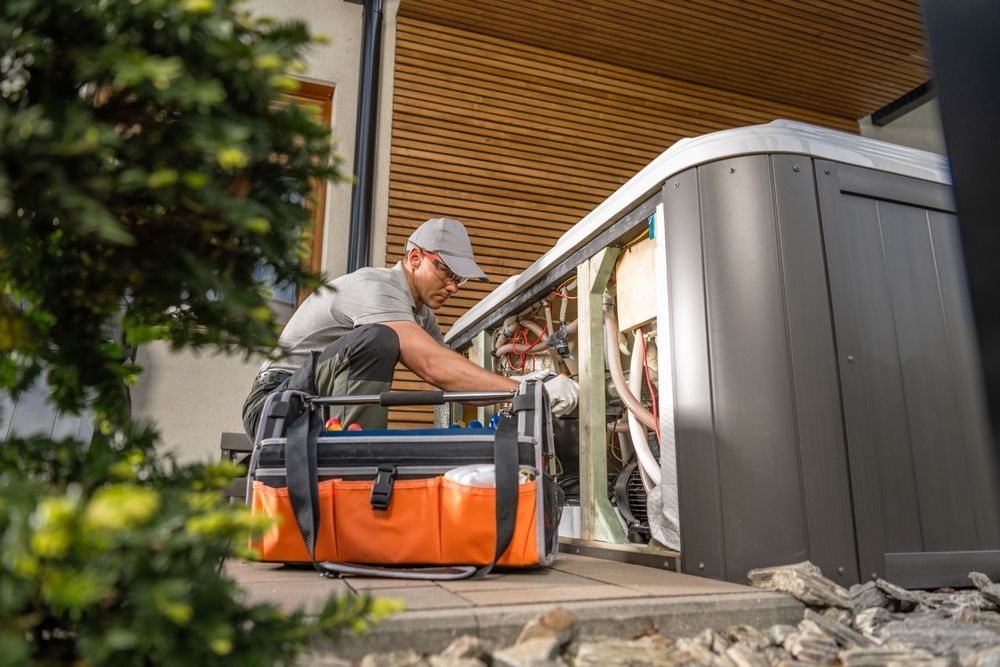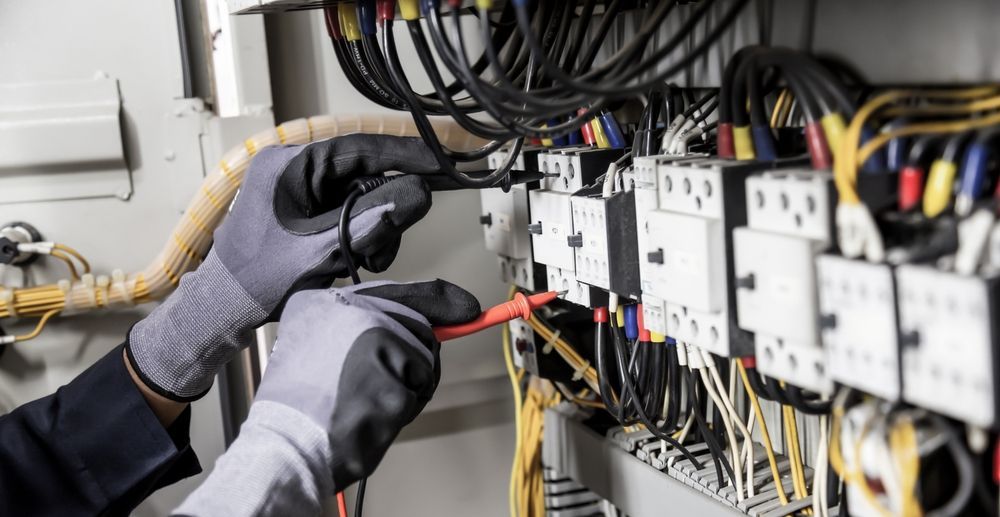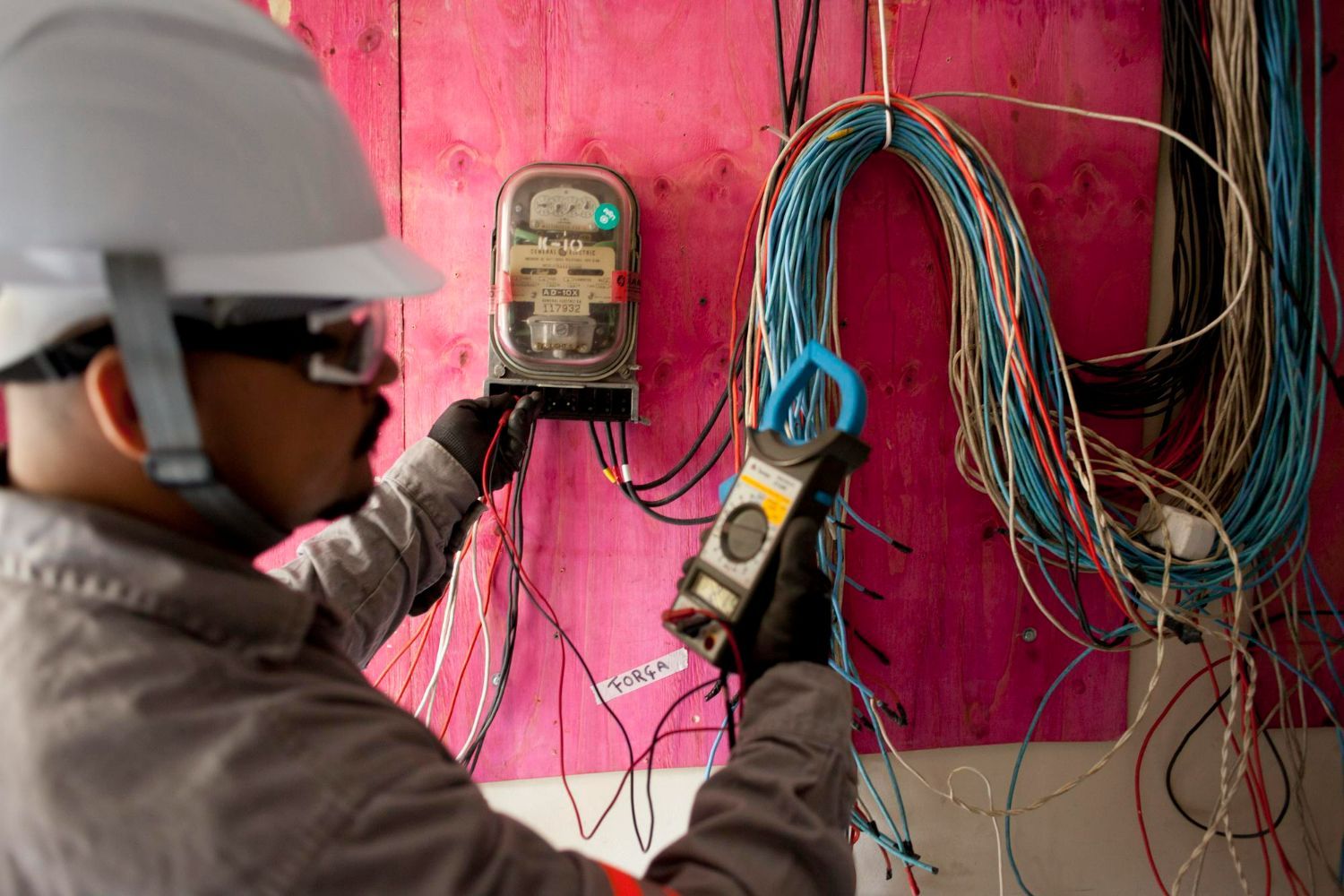Electrical Safety Tips When Working From Home
What are some electrical safety rules when working from home?
Since the start of the COVID-19 pandemic, more people than ever are working remotely. Whether your office space is now your spare bedroom, dining room table, or basement, you may not be aware of the potential electrical safety hazards around you.
Overloading your outlets and damaged extension cords can pose some significant risks.
In this article, things to keep in mind to ensure electrical safety around the home.
Do Not Overload Your Outlet
Working from home means creating a simulated office space that typically includes a computer, printer, multiple chargers, etc. Digital devices require large amounts of electricity.
You should never plug more than two electronics into an outlet. Overloading your outlets will draw more electricity than the circuit can handle.
If the circuit breaker trips, it will stop the electricity flow to the entire circuit. Without a circuit breaker, the wiring overheats and can potentially start a fire, putting you, your family, and your property at risk.
There are warning signs that indicate a circuit is overloaded.
If the lights flicker or dim when you turn on several office machines at once or they fail to draw enough power, it could be due to a voltage drop caused by overloaded outlets.
Buzzing or humming sounds, a burning smell coming from the outlet, the circuit breaker tripping frequently, and getting a shock when touching outlets, switches, or appliances, are other signs that your circuit is overloaded and could be a potential electrical safety hazard.
Check Your Electrical Cords for Damage
Even if your office space is new, you could be using older equipment. Regularly check electrical and extension cords for any damage such as fraying or discolouration.
Exposed wires can be dangerous, causing shocks, electrocution, or fires, and damaged cords need replacing as soon as possible.
Unplug Computers, Fans, etc. When Not In Use
Unplug computers, fans, heaters, televisions, printers, DVD players, stereos, and chargers when you are not using them. It will reduce the risk of electric shocks or fires. You will also use less energy, saving you money on your monthly hydro bills.
Extension Cords are Temporary; Not a Permanent Solution
Adding a home office often means an increased demand for extension cords and power strips to operate multiple electrical devices.
Although they’re handy, extension cords are for temporary use. When used continuously, they deteriorate rapidly, creating a potential electric shock or fire hazard. Use extension cords for short periods and unplug them when not in use.
Avoid Running Your Cords Under Rugs, Chairs or Doors
Extension cords can be unsightly when strewn all over your home. It’s why people often hide them under carpets and rugs. However, running them under a carpet can cause them to overheat.
Cords hidden under rugs are more likely to be stepped on, which can tear the plastic sheathing and fray the wires inside.
Running cords through doorways or under chairs and other furniture can cause them to crimp and destroy the insulation over time.
Cords and cables near doorways can also be a tripping hazard. If you need to run a cord on the floor, keep it near a wall and secure it with zip ties. Never glue, tape, staple, or nail cords to the flooring.
Contact Us!
Ferguson Electrical Solutions serves Kitchener-Waterloo, Cambridge, Guelph, Woodstock, Brantford, Stratford, and the surrounding areas with complete electrical construction and maintenance services for residential, commercial, and industrial projects.
For more information about services offered, call us at 519-400-9825 or
online
.












